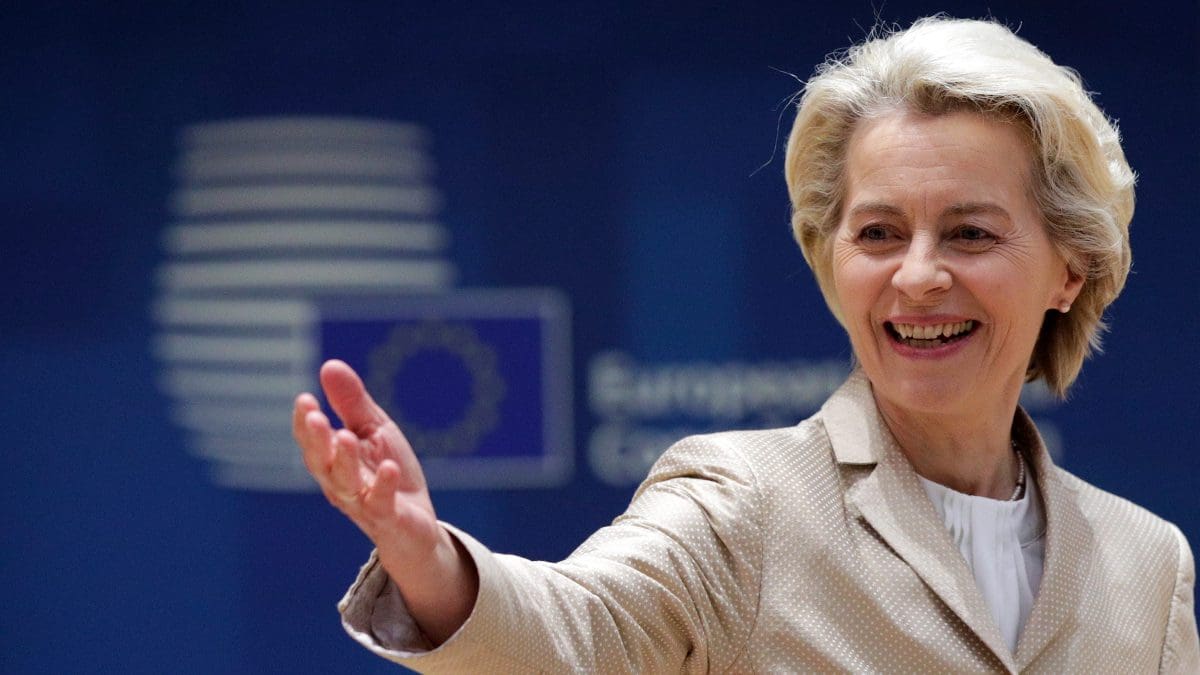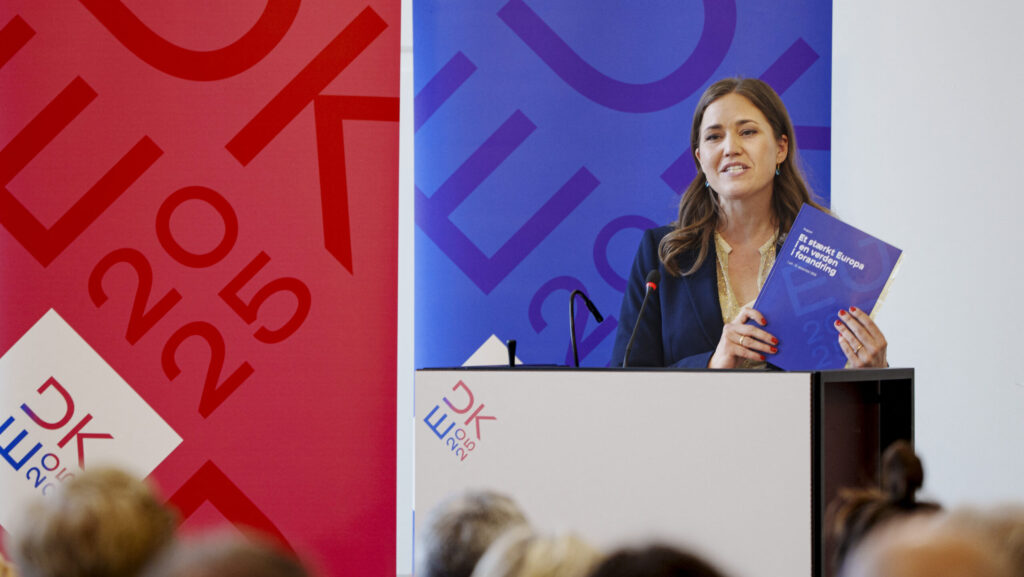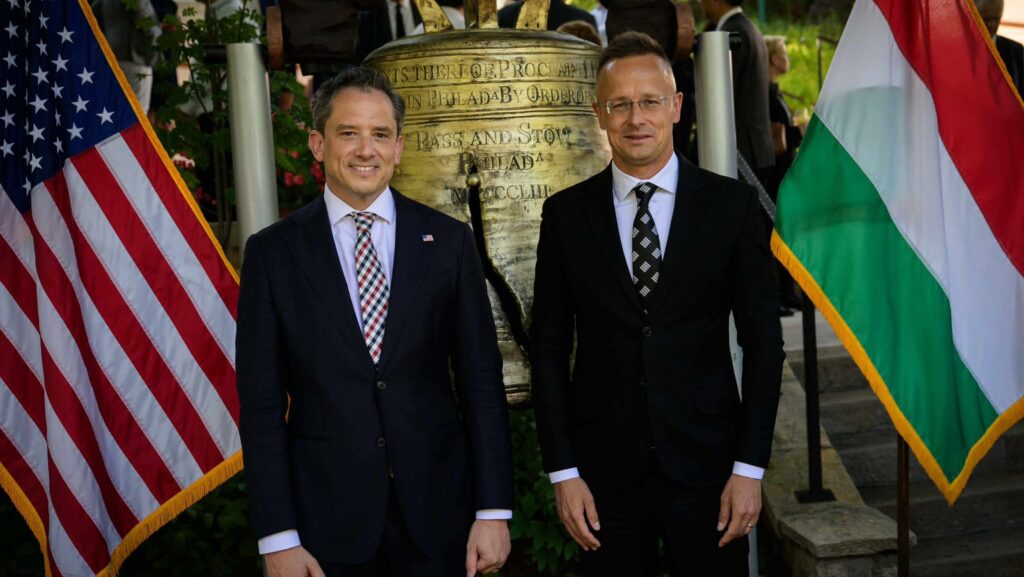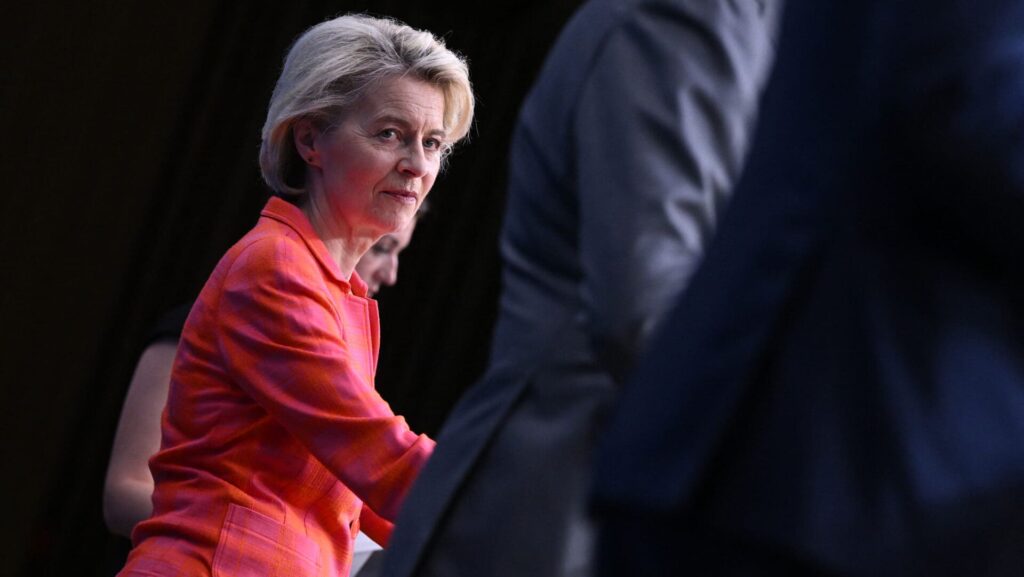‘VON YOUR BIKE, URSULA Euro boss Ursula von der Leyen is in the running to be new head of NATO’—it was with this headline that British newspaper The Sun opened the debate about the future of Ursula von der Leyen (VDL), now President of the European Commission. Many European media outlets have jumped on this train. The background of the rumour is that the current secretary general of NATO, Jens Stoltenberg, will resign from office this autumn. He has resigned before, but this time he really will leave.
The position of NATO Secretary General (Sec-Gen) is one of the most important and most prestigious jobs in international politics, because NATO is the most powerful military alliance in the world. And even though the Secretary General is only by title a general and has no military commanding power, it is not merely a representative role. The Sec Gen is in day-to-day contact with the heads of states and governments of the free world and beyond. What the chief of NATO says and does now represents 31 countries, including most EU member states and big military powers like the USA, the UK and France—three of just few nuclear powers that also have a seat on the UN Security Council. NATO’s combined military spending as of 2020 constituted over 57 percent of the global military expenditure. So, the position is not only important, but also has some bling-bling. What a job!
That is also why candidates traditionally come from very high ranks. Nearly all previous Sec Gens were either former top diplomats, government ministers or even prime ministers, as were the last and the current Sec Gen.
‘Don’t mention the war’ is a famous saying from the UK sitcom Fawlty Towers. It was difficult not to do that even in the sitcom, but in today’s real life it is hard to imagine that not mentioning the war will ever again be an option. Since last year’s Russian attack on Ukraine and the ongoing war life has changed.
Zeitgeist says Zeitenwende. And surely NATO has changed and probably will change even more.
In 2019, French President Emmanuel Macron said ‘What we are currently experiencing is the brain death of NATO’—and the main job of NATO’s top officials seemed to be proving that NATO was still alive and kicking. Which was actually quite strange even at that time.
But why are we talking about that now? Why are we changing horses in midstream? Why don’t we keep the very experienced and supported Norwegian former prime minister, Jens Stoltenberg? Never change a running system, says another saying. Well, the answer is not easy. He has already served more than two terms and only accepted staying in office one year longer due to the war. Because just before the war started, he had already been nominated Governor of Norges Bank, Norway’s central bank. In fact, there is nothing special about that: most of his predecessors have served only three to five years. But there is no rule on the minimum or maximum length of the Sec-Gen term, and there has, for example, been Secretary General Joseph Luns, former Dutch Minister of Foreign Affairs, who served for more than 12 years. What is way more important is that the political circumstances have changed a lot since Stoltenberg was elected in 2014. Apart from the outbreak of the war, the USA now has a left-liberal President, France has a different President, Germany switched from non-ideological, highly pragmatic Angela Merkel to a left-liberal-green confusion government. And so forth. Many of those governments are now preparing for the upcoming poker games with bets on international political positions, such as the Sec-Gen’s post this year, and with the EU elections next year resulting in a major reshuffle.
And here it is: there will be a change of guards in the EU’s institutions, too. There will be a new European Commission—the ‘guardian of the treaties’—, an entity that has evolved from a pragmatic, Council-controlled administrative body (as it should be according to the treaties,) to an uncontrolled Political Commissars’ Club which has shown very low interest in real solutions to real problems, but one that wants to be a Central Committee, not only telling its member states in detail what to do, but also having an ideological mission of telling the rest of the world how to live. Hand in hand with it’s politically even more out-of-control and out-of-mind wannabe parliament, the European Parliament.
But anyways, a changing of the guard is coming. And that means that
Ursula von der Leyen—by the way, nominated, if not created, by former German Chancellor Angela Merkel—, just like Jens Stoltenberg, has to look for a new job.
Pony riding is obviously no option for her any more. She is a political animal, a political wolf maybe. Too bad that there are technical and political obstacles.
Technically, it is a question how an incumbent President of the Commission, who is in office until summer 2024, could take the seat in NATO’s main chair in autumn 2023. It probably wouldn’t be a problem in peace times, but that is not the case. But knowing the ‘flexibility’ of the system, there could be a solution for this. Ideologically, what comes to one’s mind is that the now unemployed and formerly unelected Finnish prime minister, Sanna Marin could be a gap-filler. That would also fit the pattern nicely: after Danish Anders Fogh Rasmussen and Norwegian Jens Stoltenberg she, a Finn, could be another Nordic Sec-Gen from a new Scandinavian NATO members state. Even though politically unsuccessful and unexperienced, she is exactly the type of person popular in the elite circles of the EU bubble.
But would Ursula von der Leyen, who used to be a German Minister of Defence in a former life, really be nominated? Although she has a so-called Christian Democratic past, she has shown how flexible she is in her political positions. But that alone doesn’t make her a favourite of her own folks, the German government of today. Germany would probably like to nominate at least one candidate from each governing party at the moment. So, Germany’s out. Would the President of the biggest and most powerful member of NATO, the United States like to see VDL in the job? Probably yes, because they have a good personal relationship and Joe Biden calls her tenderly ‘Mrs President’. Even US industries seem to have taken a liking to her. Then there are the Brits. The UK is a big player in security politics and probably has the mightiest armed forces next to those of the USA and China. Or China and the USA, depending on your position. The UK is traditionally traditional and prefers to have people in high offices who have a successful professional past.
And VDL was, unfortunately, a terrible minister of defence,
without any major achievements. But then again, what does ‘a successful professional past’ even mean in the same sentence with political office, right? Even in the UK. Some other important Western countries would probably accept VDL if they got some nice second line jobs. Italy, for example, has provided ten of the total 17 Deputy Secretary Generals in the past. It has practically become a hereditary Italian job.
Based on all this, Ursula von der Leyen could easily be the next Sec-Gen of NATO. Or is there anybody else? Ah, yes, maybe the Central and Eastern Europeans. And Türkiye, of course. One of the most powerful military powers of the region. A powerful and important player. What we can expect from Türkiye can be easily explained: it will be difficult with them. They still haven’t allowed Sweden to join NATO, because in their opinion, Sweden supports or at least tolerates political groups that Ankara considers to be terrorist groups. And just a few days ago, VDL harshly criticised Türkiye for actions which could be seen either as counter-terrorist measures or unjust attacks. However, Türkiye is a very proud nation and usually doesn’t like being criticised by some technocrat in Brussels. But Ankara’s role in geopolitics is, to say the least, colourful, and no one can imagine that a deal with Türkiye could never be concluded. The country earlier blocked the candidacy of Fogh Rasmussen and the membership of Finland, too, but finally ended up accepting them.
So, in the end, here we are. Eastern European NATO members, as they call us in Brussels, or Central European members, as we say ourselves, could be the only real problem. Again, depending on the perspective, of course. Poland, for example, is an important member of the EU and NATO and a key actor in the current war situation.
And VDL has shown little respect for this country in the past.
Actually, besides withholding very important EU fundings, the VDL-led Commission even sanctions Poland, for instance with a 1 million Euro punishment each day. And there is Hungary of course. When you look at it from the Berlaymont building, the Brussels seat of VDL and her Commission, you look at a terrible ‘overall picture’.
But Prime Minister Viktor Orbán is a very experienced and skilled politician. He has not come to stage from out of nowhere, only to leave after a few years to join some big company that pays his bills. Mr Orbán is a politician, who will look at the nomination of the Sec-Gen position from a strategic point of view. Just as he will look at next year’s EP elections and the upcoming Commission’s election from a strategic point of view. And even if many wouldn’t say it aloud, quite a few of this fellow politicians in the region and maybe beyond quietly follow his advice, as they did during the elections of the last Commission. With him, you cannot make short term deals, only deals that are sustainable and that respect the interests of Central Europeans as well.
If anyone wants to have Poland and Hungary on board and have a smooth change in those top jobs, they will need to talk with them and offer them real partnership instead of lecturing. Maria Theresa, Empress and King (sic!) of Austria and Hungary, already knew more than 250 years ago that if one wants a flourishing empire, if one wants to be successful, one needs to integrate the Central Europeans and talk to them at eye level as partners! What a woman, what a politician!








